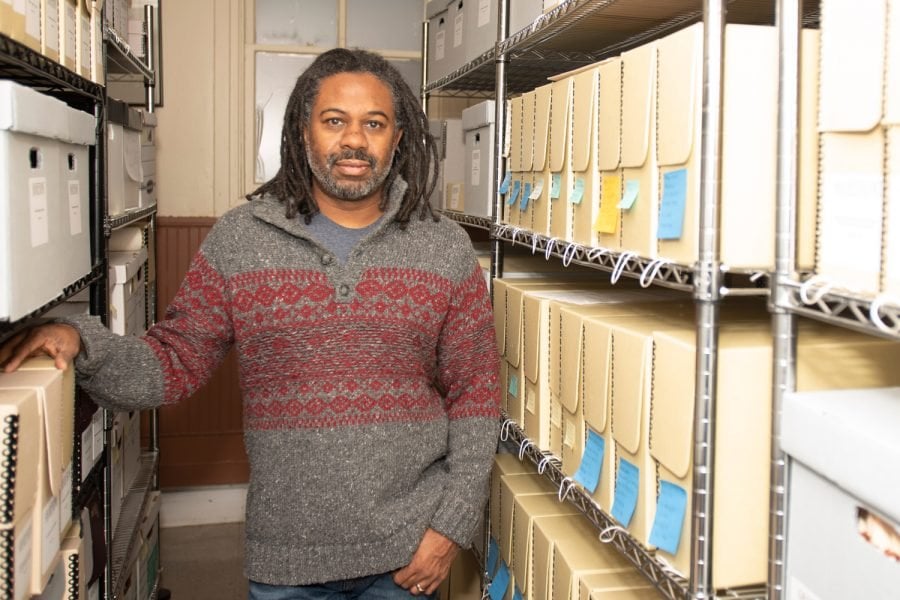Evanston, Chicago leaders talk fair housing and reparations in forum
Daily file photo by Colin Boyle
Shorefront Legacy Center founder Dino Robinson. Robinson moderated the forum, which focused on how historical housing discrimination can be remedied through reparations programs.
May 4, 2021
Community leaders from Evanston and Chicago discussed the history of redlining, fair housing policy and how these issues connect to reparations in a public forum Thursday.
The forum was hosted by Open Communities, an Evanston-based non-profit housing agency focused on fair housing, and was moderated by Shorefront Legacy Center founder Dino Robinson. Panelists looked at housing discrimination through the lens of politics, religion, and business and included Ald. Robin Rue Simmons (5th) and Black Coalition for Housing Executive Director Courtney Jones.
Rue Simmons said Evanston’s initial reparations program aims to redress discriminatory housing policies. Evanston’s Restorative Housing Program will distribute grants of up to $25,000 to 16 qualifying families to fund down payments, mortgage assistance or home repairs. The decision to center housing in the initial reparations program came from Evanston stakeholders’ feedback during community meetings, according to Rue Simmons.
“Although fair housing was passed, and redlining has been outlawed, the consequences of those egregious acts against the Black community continue today,” Rue Simmons said. “The redline map is still our most concentrated Black community, our most concentrated poverty, our most concentrated lack of community amenities.”
Historically redlined areas in Evanston now cover most of the 5th Ward. Rue Simmons said modern housing policies and reparations need to empower beneficiaries to support themselves, rather than provide charity that doesn’t advance their position permanently. She will serve on the newly-formed Reparations Committee after she leaves office on May 10.
Jones, a realtor and former president of the Dearborn Realtist Board in Chicago, added that support for city housing programs from private groups in the Black community to programs meaningfully combatting housing discrimination.
“When you look at our clergy leadership, our trade association boards, and entities alike, now you have an environment where we can be promoting the different housing programs and initiatives,” Jones said. “The congregants can actually get their spirituality growth at that faith center, as well as economic relief.”
Robinson ended the forum by reflecting on his own experience refinancing his home, and how the problems he’s faced exemplify a continuation of historical housing discrimination to the modern day.
“We have to look at federal guidelines to change,” Robinson said. “The vestiges of redlining still inform banks, and lenders, and real estate agents, and cities on how to invest in a community.”
Email: [email protected]
Twitter: @alexhairysun
Related Stories:
— City Council approves community members to Reparations Committee
— City Council passes the country’s first reparations program for Black residents
— In Focus: With the eyes of a nation on Evanston, the first step of the historic reparations program faces pushback


